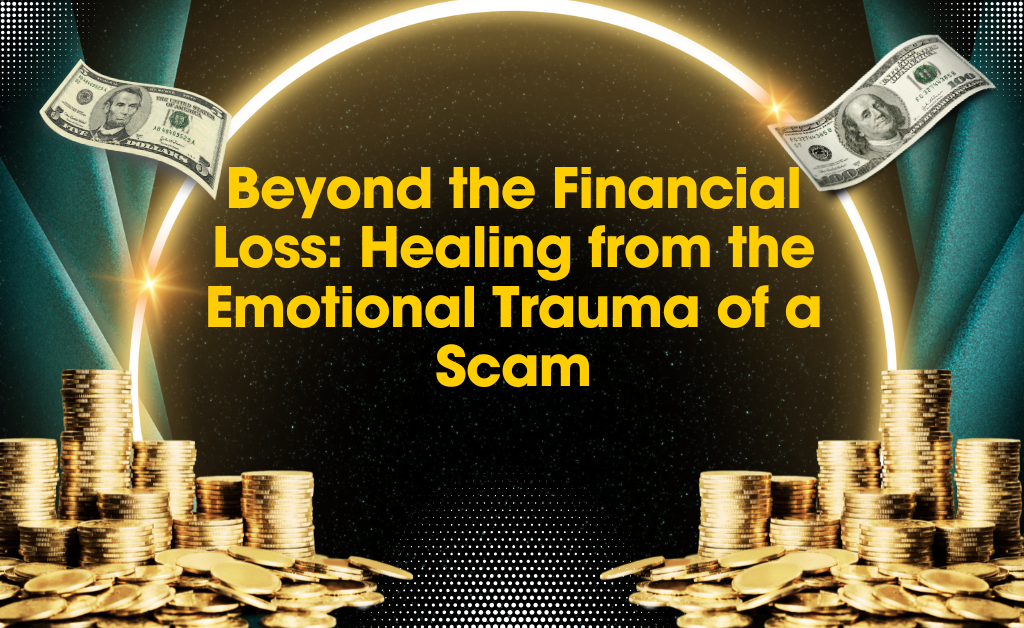When a person falls victim to a financial scam, the immediate focus is almost always on the money. How much was lost? Can it be recovered? While these are critical questions, this narrow focus overlooks a deeper, and often more lasting, injury: the emotional trauma. The financial loss is painful, but the psychological fallout—the feelings of shame, violation, and self-blame—can be utterly devastating.
For many, this emotional toll is the hardest part of the recovery process. It’s a silent burden carried long after the bank accounts have been secured. Understanding and addressing this psychological impact is not a secondary concern; it is essential for true recovery and moving forward. If you are grappling with the emotional aftermath of a scam, know that you are not alone, and your feelings are a valid response to a profound betrayal.
Why It Hurts So Much: The Psychology of Betrayal
Scammers are not just thieves; they are masters of psychological manipulation. They don’t simply break into an account; they methodically break down a person’s defenses. Whether it’s an investment scam that exploits ambition, a romance scam that preys on loneliness, or a phishing scam that uses fear, the core of the crime is a violation of trust.
Shame and Self-Blame: The most common feeling victims report is intense shame. You might find yourself endlessly repeating the events in your mind, asking, “How could I have been so stupid?” or “Why didn’t I see the red flags?” This self-blame is precisely what the scammer relies on. They create scenarios so convincing and exploit such fundamental human emotions that even the most cautious people can be deceived. It is not a failure of intelligence, but a testament to the scammer’s sophisticated tactics.
Anger and Frustration: It is completely natural to feel white-hot anger—at the scammer for their cruelty, at the system for its inability to help, and even at yourself. This anger is a normal part of the grieving process. You are grieving the loss of money, the loss of security, and the loss of a particular worldview where you felt safe.
Isolation and Fear: Scams can make you feel profoundly alone. The shame often prevents victims from talking to friends or family, fearing judgment or ridicule. This isolation creates a vicious cycle, trapping you with your negative thoughts. It can also lead to a new, persistent fear, making it difficult to trust emails, phone calls, or even new people in your life.
Steps Toward Emotional Healing
Recovering from the emotional trauma of a scam is a process that requires time and intentional effort. Just as you would take steps to secure your finances, you must also take steps to heal your mind.
1. Acknowledge the Crime and Validate Your Feelings: The first and most important step is to frame the event correctly: you were the victim of a crime. You did not “give your money away”; it was stolen from you through calculated deception. Allow yourself to feel anger, sadness, or fear without judgment. These are not signs of weakness; they are signs that you have been deeply wronged.
2. Break the Silence and Seek Support: Shame thrives in silence. One of the most powerful actions you can take is to talk about what happened. Start with one trusted person—a spouse, a sibling, a close friend. Choose someone who you know will listen with empathy, not judgment. You will likely be surprised by how much lighter you feel simply by sharing the burden. You can also seek out online support groups for scam victims, where you can connect with others who truly understand what you are going through.
3. Practice Self-Compassion: Speak to yourself the way you would speak to a friend who has just gone through the same experience. Would you call them stupid? Or would you offer them comfort and support? Actively counter the negative self-talk. Remind yourself that millions of intelligent, careful people are scammed every year. This happened to you; it is not a reflection of you.
4. Limit Your Exposure to Blame: Unfortunately, not everyone will understand. Some people may react with insensitive comments or “I told you so” attitudes. It is crucial to protect yourself from this secondary victimization. Limit your contact with those who are not supportive and lean on those who are.
5. Re-establish a Sense of Control: A scam can make you feel powerless. Reclaim your sense of agency by focusing on what you can control. This includes meticulously reporting the crime to all the relevant authorities, securing your accounts, and educating yourself on scam prevention for the future. By taking proactive steps, you shift from a passive victim to an active survivor.
The scars from a scam may not be visible, but they are real. Healing is about more than just recovering money; it’s about recovering your sense of self, your trust in your own judgment, and your feeling of safety in the world. Be patient and kind with yourself as you navigate this difficult journey.


